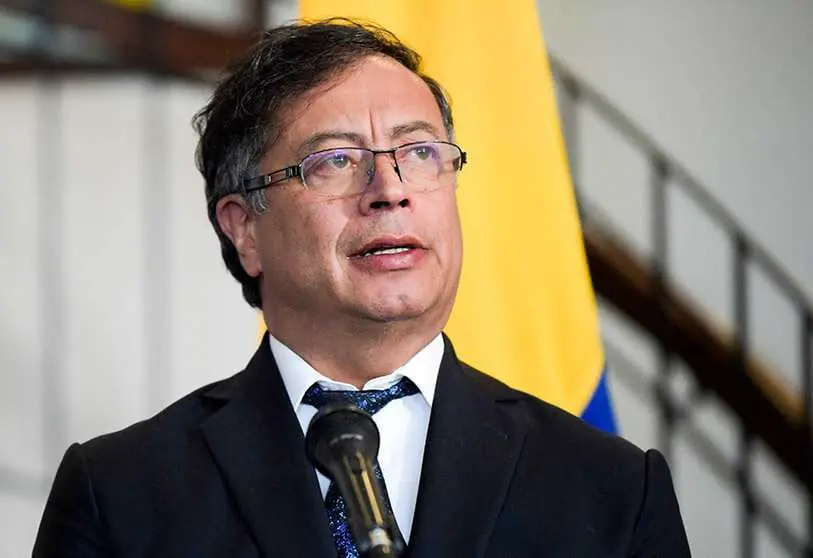Gustavo Petro and the fear of the left

On 7 August, Gustavo Petro, a former guerrilla with progressive liberal ideas, was sworn in as president of Colombia. In fact, he marks a difference with other left-wing leaders in Latin America, given that he was not a follower of the classic Stalinist, Maoist and pro-Cuban socialist left. He therefore has profound ideological differences with the left regimes of Venezuela, Cuba and Nicaragua. On the other hand, there are many coincidences with the left visions of Lula, Mojica and López Obrador.
Their political approaches bear no relation to the Stalinist socialist politics of the Communist Party of the former Soviet Union and even less to the Maoist socialism of Mao Tse Tung's China. Its approaches are nationalist, based on the green economy of progressive capitalism and are opposed to the globalism of neo-liberal financial capitalism.
For this reason, the political rupture generated by his election in Colombia has different nuances to the classical Latin American left. It is not a rupture between the anachronistic ideological division of right and left of the Cold War world of the 20th century. It is a political rupture similar to the one that occurred in Colombia in 1930 when the conservative hegemony that governed from 1886 to 1930 was defeated and the Liberal Republic emerged from 1930 to 1946. This was a period when the great economic, political and social reforms were carried out in Colombia to adapt the state to the changes of modern capitalism.
These changes took place in the context of the imperial struggles between the United States and Germany. Now Petro's rise to power occurs within the context of imperial struggles between the US and China, and indeed, a hegemonic struggle that goes beyond the outdated ideological divisions of the Cold War world.
It is therefore interesting to examine that the M-19 guerrilla movement, of which President Petro was a member, was a nationalist guerrilla group born out of the electoral fraud against the candidate of the Alianza Nacional Popular (Anapo), the former dictator Gustavo Rojas Pinilla (1953-1957), in the 1970 elections. It was a guerrilla movement inspired by the libertarian ideals of Simón Bolívar. That is why his sword was the main symbol of their armed struggle.
Its closeness to Bolívar's political ideas explains to a certain extent its alliance with the National Salvation Movement of the late conservative leader Álvaro Gómez Hurtado. This alliance was key and decisive in promoting the 1991 Constituent Assembly, which gave rise to the Political Charter that governs Colombia, because the M-19 shared with Gómez Hurtado the thesis of profound reforms of the country's prevailing regime.
The very nature of the nationalist philosophy and the Bolivarian ideology that gave rise to the birth of the Conservative Party explains why several former M-19 militants are part of former President Álvaro Uribe Vélez's Centro Democrático political party.
Petro is a follower of the left-liberal ideology that has governed Colombia. The politics of fear that is spread against him is based on many fallacies. His government programme takes up the political banners and unfinished reforms of the liberal party, especially those of the Revolución en Marcha of former liberal president Alfonso López Pumarejo, the policies of moral restoration of liberal leader Jorge Eliécer Gaitán, the political moralisation and the fight against drug trafficking of liberal Luis Carlos Galán Sarmiento and the theses of Gómez Hurtado on an agreement on the fundamentals.
The reforms he proposes are identical to those formulated by the Liberal Party since the 19th century and are what Colombia needs to reorient its economic development and move from a mineral-extracting economy to an economy based on an agricultural and industrial revolution.
His proposal for agrarian reform is similar to what Liberalism proposed in 1936, 1962 and 1968. His proposals are not to turn Colombia into a socialist country like Venezuela, Cuba or Nicaragua, but to modernise the state and adapt its productive apparatus to the changes of progressive capitalism.
Petro is not the first left-wing president, as Alfonso López Pumarejo and Ernesto Samper Pizano were, nor is he the first ex-guerrilla to hold the presidency, as Antonio Nariño, Camilo Torres, Simón Bolívar, Francisco Paula Santander, José María Obando, José Hilario López, Tomás Cipriano de Mosquera, among others, were.
@j15mosquera


